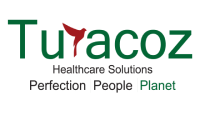Digitalization has recalibrated healthcare to new heights. It is imperative for healthcare professionals and medical students to stay abreast with scientific and clinical advancements, but ironically the rush hours of duty leave them very little room and time for it. Nevertheless, newer technological options have widened the windows to healthcare communications and one such innovation is the emergence of Podcasts. Podcasts have been around for some time providing audio experiences to diverse fields but its passage into the healthcare industry has unlocked a whole new dimension. 2005 to 2016 has witnessed increased publications about it, reinforcing the boon of medical podcasts.
What is a Medical Podcast?
Podcasts are the radio of a new era; they are digital audio files which can be easily downloaded and accessed at convenience. They have been instrumental in overhauling medical education. While some fields of medicine have active podcasts available, some are yet to venture into it.
Here is a list of Benefits of Podcasts
1. Sensory Experience
An audio format certainly adds more poundage to information. It gives depth to the kind of medical knowledge being disseminated and expedites assimilation due to its high sensory quotient.
2. Convenience
Needless to say, it is the most convenient mode of receiving information. All one would need is a listening device on the head and passion to learn, inside the head!
Click Here:- Scientific Presentations: The Canvas of Medical Industry
3. Expanding Perspectives
Podcasts offer more creative perspectives through strong mental imageries and critical thinking.
4. Deeper Engagement
Deep listening is a salient quality that a medical practitioner, willingly or unwillingly, needs to cultivate. Podcast listening helps practitioners have deeper engagement with not only the content, but also with their peers and patients. Practitioners who have experienced podcasts can even share the recordings with their patients and help them understand their conditions, treatment strategies, etc. The conversation and terminologies which are often tough to explain are made easy with podcasts.
5. Multitasking
One of the main reasons behind the popularity of medical podcasts is the liberty of
multitasking. Podcasts will not ask for any extra time from your busy schedules. You can learn a new skill while folding your clothes or listen to case studies while walking. Listening to podcasts while working also has a positive impact on your co-ordination skills and judgment ability.
6. Pocket Friendly
A podcast gives you freedom from enrolling and paying for books. They are certainly
less expensive and an entertaining way to learn. One can gain knowledge about anything from the medical industry to stories of patients. Podcasts have their way to get involved with you and your daily life. You can play them anytime and anywhere and it will not burn a hole in your pocket.
7. Shrinking the Stress
The power of healing others leaves an impact on HCPs, nurses and other medical caregivers. Witnessing pain and suffering daily asks for the mind and eyes to rest. Auditory simulations can be deeply relaxing since they enhance your imagination and help in de-stressing.
8. Challenging Boundaries
Podcast is an equally well-equipped mode of disseminating medical information as a manuscript or a book and is a blessing for medical students and professionals who are visually impaired. Podcasts break the boundaries of physical challenges and keep them well-informed and aligned to the latest of the healthcare industry.
Reference






























